Blockchain Development Agency
Protect your business with the high level of security to a greater extent using blockchain technology Let’s DiscussUnlock business benefits with blockchain solutions – Blockchain Development Agency
Effortlessly Discover how our blockchain expertise can transform your business. With Xira Infotech, innovation meets simplicity, giving you the edge in the digital revolution.
Benefit from tailor-made blockchain solutions that elevate your operations, ensuring security and growth. Our commitment? To navigate you through the complexities of blockchain, so you can lead in a world where efficiency is paramount.
Experience Excellence in Blockchain – Your journey begins here with Xira Infotech.
Blockchain is the foundational technology that underpins cryptocurrencies and various other applications. Cryptocurrencies, like Bitcoin, are digital currencies that use cryptographic techniques within a blockchain network to secure transactions, verify transfers, and regulate the creation of new currency units. Unlike traditional currencies such as the US dollar, cryptocurrencies operate solely in the digital realm, offering decentralized and secure means of exchange.
What is blockchain technology?
A blockchain is a decentralized ledger of all transactions across a peer-to-peer network. Using this technology, participants can confirm transactions without a need for a central clearing authority. Potential applications can include enterprise blockchain applications, sustainability, tokenization, fund transfers, supply chain tracking and many other areas.
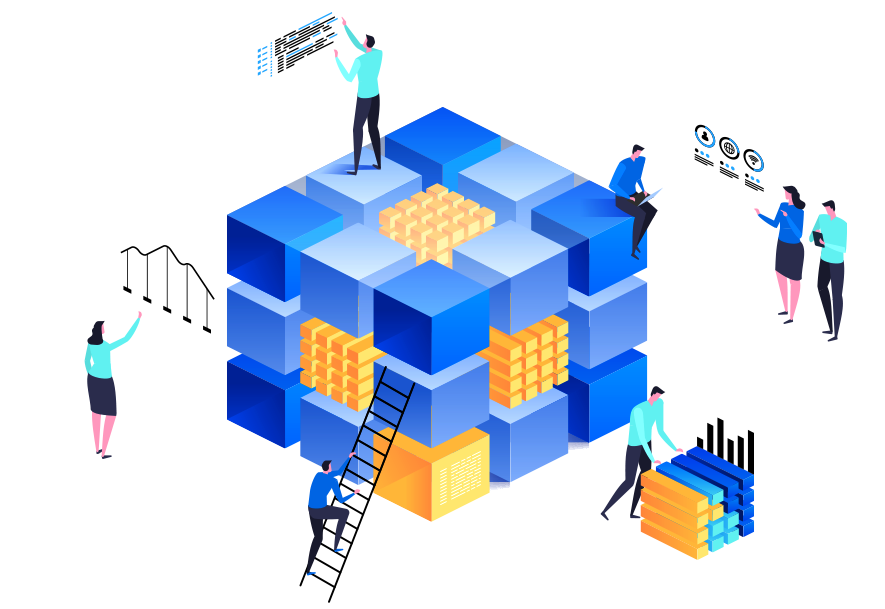
Key Benefits of our Enterprise Blockchain Development Solutions

Enhanced Security
It is more secure than other record-keeping systems. The reason lies in its base structure, where each transaction is encrypted and linked to the previous one.

Cost Effective Transaction
With no need for a third party or middle man, blockchain solutions are cost effective. No review of documentation is required to complete a trade.

Higher Transparency
Because of the distributed ledger, blockchain solutions are more transparent. All network participants share the same documentation.

Increased efficiency
Blockchain's decentralized nature eliminates the need for intermediaries in fields such as payments and real estate, resulting in increased efficiency.
Which Are the Most Popular Blockchain Platforms?
The list of private blockchain platforms is quite long. Therefore, we have filtered all the platforms, and here is the list of the most popular ones.

Bitcoin
It is the first and most popular blockchain platform for peer-to-peer electronic transactions. The platform is highly secure and maintains transparency. It controls its cryptocurrency aka Bitcoin.
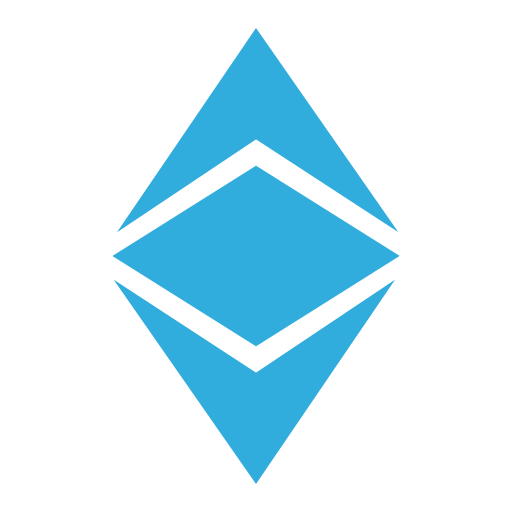
Ethereum
Introduced in 2013, Ethereum is another excellent blockchain platform. Like the Bitcoin blockchain, it is decentralized as it boasts the support of smart contract development. However, it lacks processing speed and has a higher transaction processing cost.

BSC
This private blockchain platform was developed by one of the leading cryptocurrency exchanges, i.e., Binance. BSC aims to offer secure and fast transactions at low fees, making it an excellent choice for developing DeFi applications.

Cardano
This blockchain platform is well-renowned for emphasizing sustainability, scalability, security and transparency. Thus, it becomes one of the best choices for secure and dependable smart contract development.

Polkadot
Introduced in 2013, Ethereum is another excellent blockchain platform. Like the Bitcoin blockchain, it is decentralized as it boasts the support of smart contract development. However, it lacks processing speed and has a higher transaction processing cost.

Solana
It is a high-performing private blockchain platform designed to develop decentralized applications and cryptocurrencies. The platform offers fast transaction speed and low transaction fees, making it an ideal choice for developing high-throughput applications.
Types of Blockchain Applications
Public Block Chain
This is a permissionless type of blockchain and is non-restrictive. Any user having an internet connection can sign in to a blockchain platform to become an authorized node. The distributed ledger technology (DLT) of the blockchain became popular due to the public blockchain. A public blockchain doesn’t retrieve and store information at a single point but the information is dispersed across a whole network. Thus the information is accessible by all participants in a decentralized network. To ensure that the information is authentic, it requires verification which is done either through Proof of Work (PoW), or Proof of Stake (PoS).
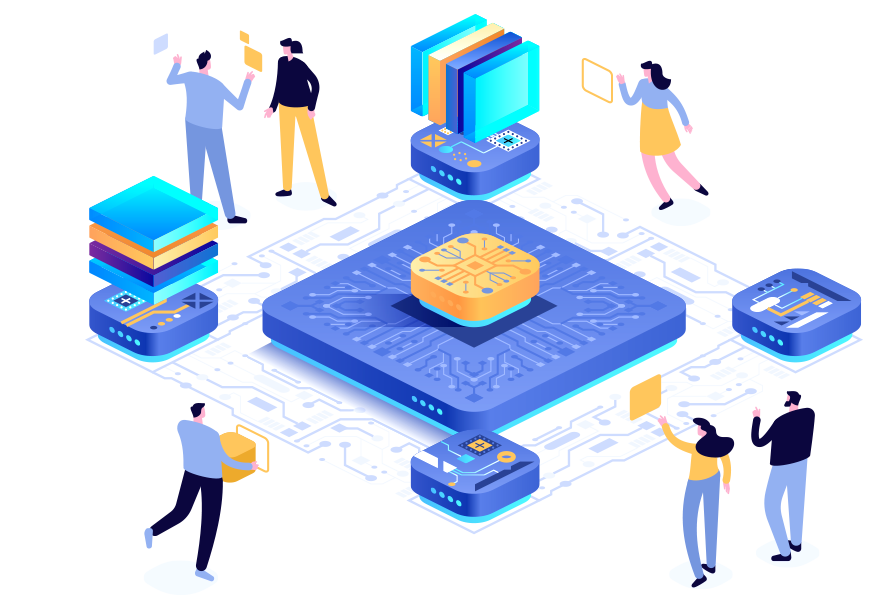
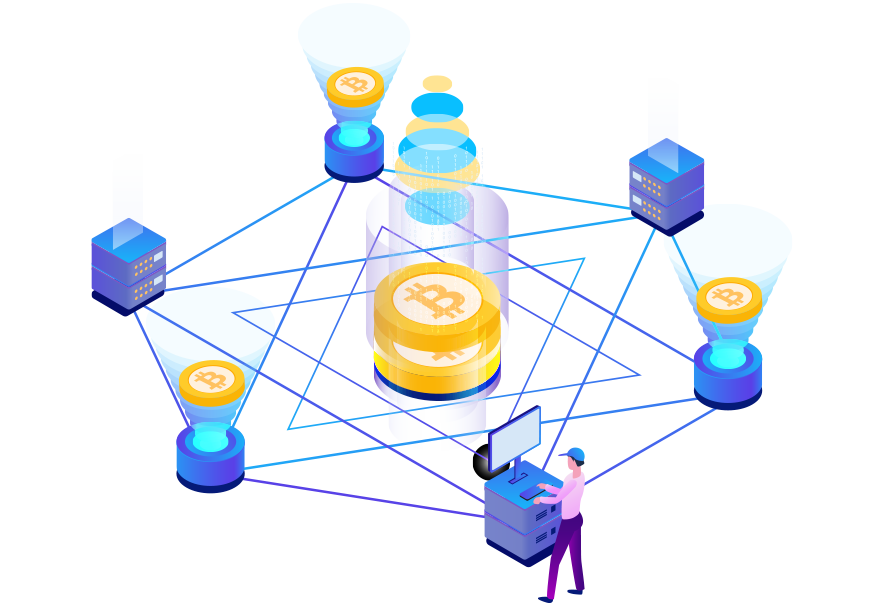
Private Block Chain
A private blockchain works like a restrictive network and is under the control of a single entity. The operating method is the same as that of public blockchain in regards to decentralization and peer-to-peer connections but works on a comparatively smaller scale. Not everyone is allowed to join a private blockchain, and a private blockchain mostly operates on a small network of a company or an organization. Blockchain app development companies can set different levels of permissions, security, authorizations, and accessibility in a private chain.
Hybrid Blockchain
As the name indicates, a hybrid blockchain is an amalgamation of both private and public blockchain. The organizations can create a private permission-based system in addition to a public permissionless system. Thus, they have the flexibility to control who can specific data of the blockchain, and which data will be available for the public. Generally, in a hybrid blockchain, the transactions and records are not available to the public, but access can be given when needed, mostly by a smart contract. Confidential information is verifiable but is kept within the network. Even though a private entity owns a hybrid blockchain, it still can’t alter transactions.
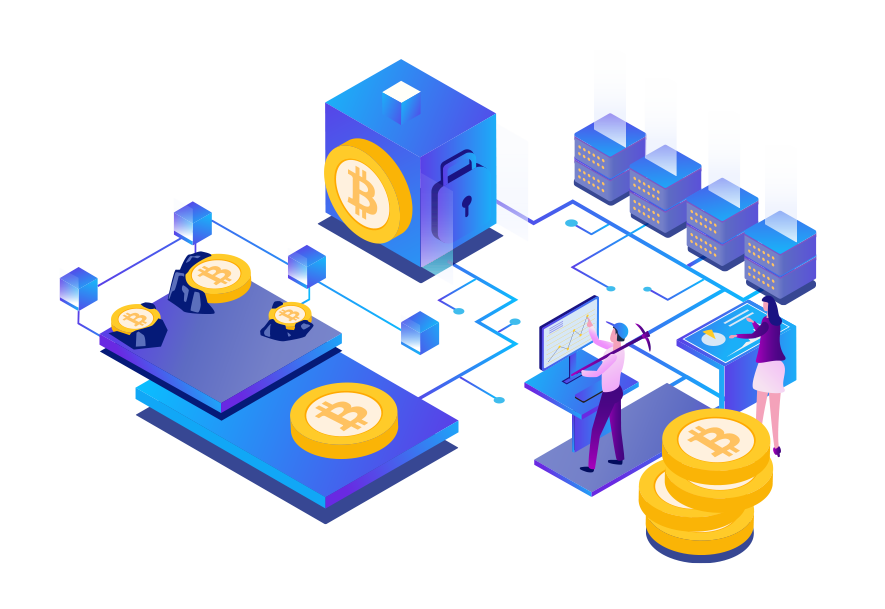
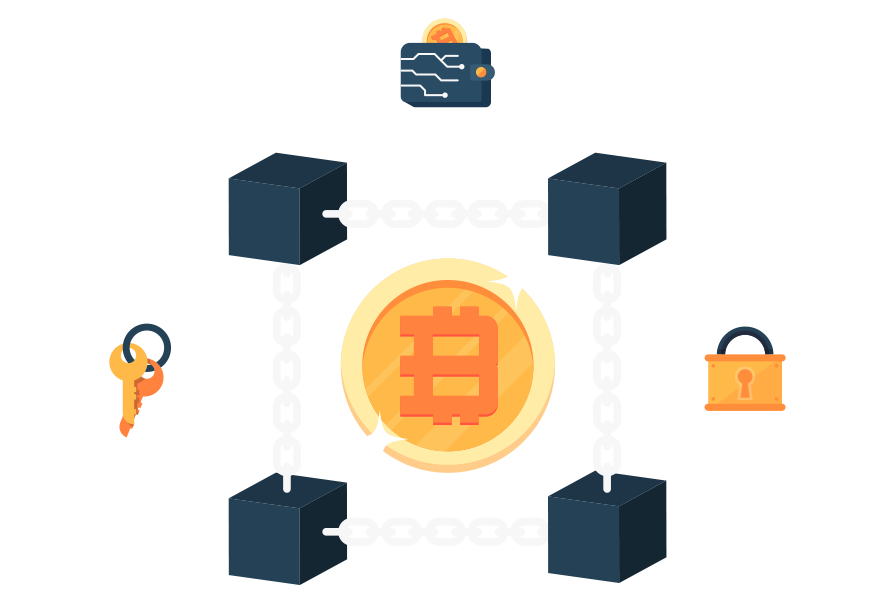
Consortium Block Chain
Popularly known as federated blockchain, a consortium blockchain is like a hybrid blockchain as it has both private and public blockchain features. However, in this blockchain instead of a single organization, multiple organization members can collaborate on a decentralized network. It is a private blockchain but the access is given to a particular group. Thus, it mitigates the risks that come with just one entity controlling the network on a private blockchain.
Get Transparent, Reliable, and Secured Blockchain App Development Services
Have An Blockchain App Idea In Mind? Get a free consultation & Wire-frames done from our experts!
Industries investing in blockchain development
Various industries leverage Blockchain technology for designing, developing, and deploying applications as they come across its potential and benefits. Here are a few industries that are actively investing in blockchain app development.
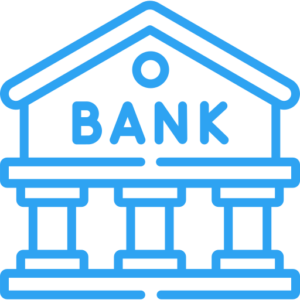
Finance and Banking

Healthcare

Real Estate
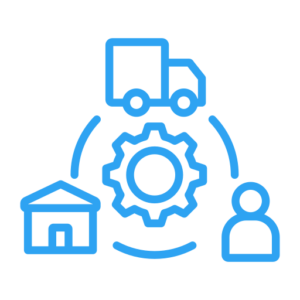
Inventory & Supply Chain

Agriculture

Education
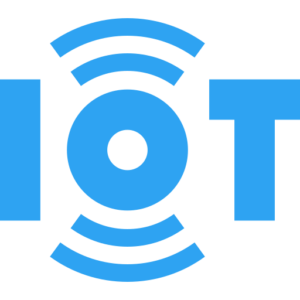
Internet of Things

Gaming & Entertaintment
Factors To Consider in Blockchain Wallet App Development
While developing a blockchain app development, it is imperative to consider all the factors involved. Here is the roster of the important factors to consider:
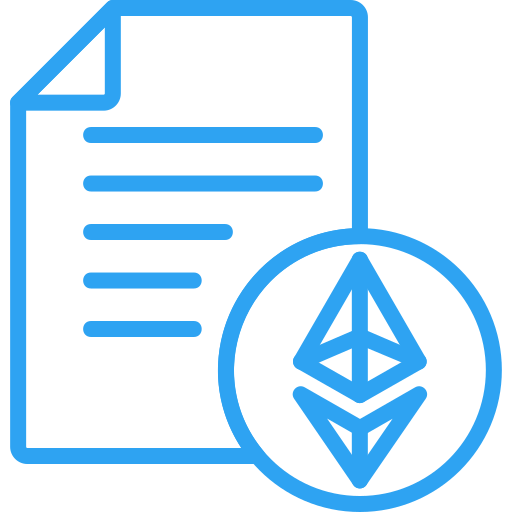
Smart Contracts
A blockchain has to employ several protocols for consensus like PoW (Proof of Work), PoS (Proof of Stake), PoET (Proof of Elapsed Time), and others. So it is imperative to select the right platform based on consensus protocol.

Cryptocurrency
Cryptocurrency is an important aspect that you can’t omit while looking for blockchain application development. Make sure you conduct adequate research to decide whether or not your mobile application needs to support cryptocurrencies.

Private/Public Type
We have already explained the Public and Private types of blockchain. If you want a network where everyone can participate and make changes then go for public, or if you want only authorized users to participate then you have to build a private network blockchain.

Adoption Rate
You have to identify the adoption rate of the current blockchain and also the community support. The adoption rate signifies the extent to which a blockchain has been implemented. It is always a good decision to opt for a technology which is more widely being used than technology with a low degree of acceptance.

Scalability
Three important considerations should be made while examining blockchain scalability: decentralization, security, and speed. The term “scalability trilemma” refers to the circumstance in which a developer could only be able to satisfy two of the three specifications.
How Xira Infotech IT Solution
Stands Out as the Leading Blockchain App Development Company?
What are the most common applications of blockchain?
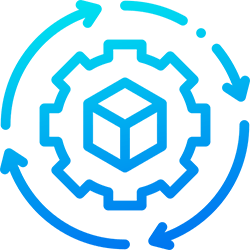
Supply chain management
Blockchain in supply chains tracks each product’s journey, ensuring transparency, preventing fraud, and verifying authenticity.

Audit & tracking
It’s used for secure and tamper-proof record-keeping, making it ideal for auditing and tracking changes to critical data.

Authentication
Blockchain can enhance security by providing a robust authentication system, reducing the risk of identity theft.
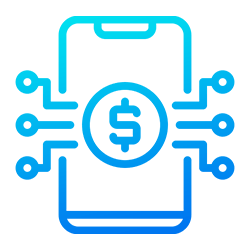
Digital Asset Ownership
It’s used to verify and transfer ownership of digital assets like art, music, and other intellectual property.
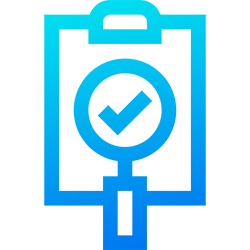
Fairness and transparency
Blockchain can be applied in voting systems to ensure transparency and prevent fraud in elections.
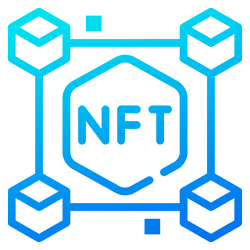
NFTs
A popular use case, enabling secure trading of unique digital items like art and collectibles.

International Payments
Blockchain simplifies and accelerates cross-border payments, making them more cost-effective and efficient.

Trade Finance
It streamlines trade processes, reducing paperwork and the risk of fraud in international trade transactions.

Cybersecurity
It enhances cybersecurity by providing secure data storage and reducing the risk of data breaches.
Blockchain’s decentralized and secure nature has made it a versatile technology, applicable in various sectors to improve transparency, security, and efficiency. It continues to evolve and find new applications as technology advances.
Ready to Make Your Idea Come to Life?
Get a Free QuoteFrequently Asked Questions concerning the Development of Blockchain Apps
What are blockchain development services?
Blockchain app development service is a process of creating highly-secured, decentralized software providing full traceability and security of the data and transactions. At Xira Infotech, we have a team of blockchain developers who master various blockchain platforms to create a feature-rich blockchain application for you.
Which company is best for Blockchain app development?
Xira Infotech IT Solution is the best blockchain app development company in the market. With an industry experience of 12+ years and a team of 30+ skilled professionals, the company offers high-end blockchain solutions.
What industries can benefit from blockchain development companies?
- Blockchain, being an immersive technology, is utilized across various industries. The industries that can benefit from Blockchain are as follows –
- Finance
- Supply Chain
- Real estate
- Healthcare
- E-commerce
- Insurance
- Government
- Energy
What blockchain development solutions do you provide?
At Xira Infotech, we provide a wide range of blockchain development solutions, including custom blockchain app development, consultation, smart contract development, blockchain integration, cryptocurrency wallet development, blockchain security and auditing.
How long does it take to develop a blockchain solution?
The time utilized in developing a blockchain solution depends upon various factors like requirements, app features, app complexity, etc. Thus, we suggest contacting us along with your requirement for an accurate estimate.
Let’s Start Something new Say Hello!


Xira Infotech is a trusted IT solutions provider, dedicated to helping businesses thrive in the digital age. We specialize in web and mobile app development, custom software solutions, IT consulting, cloud services, and digital marketing
